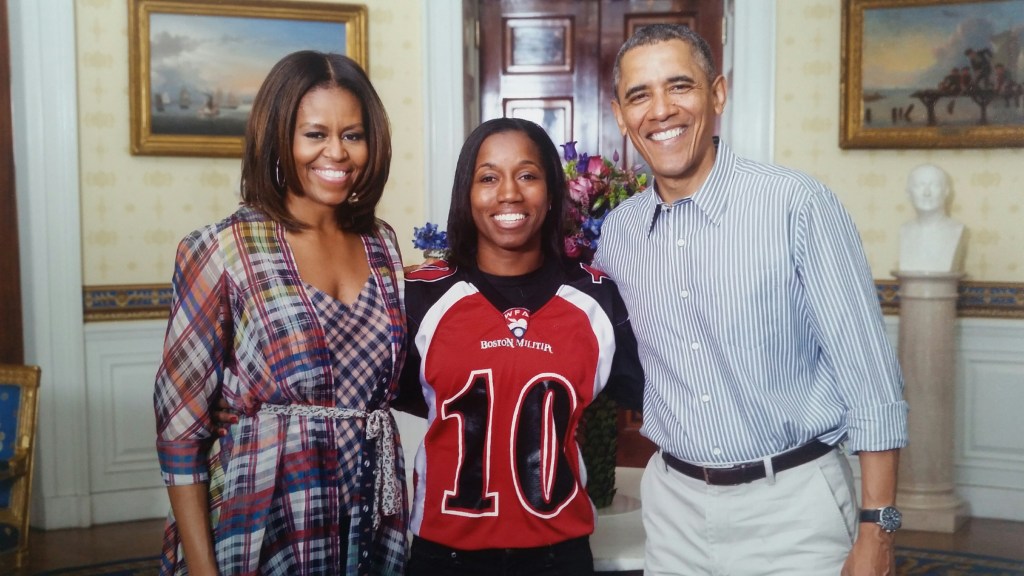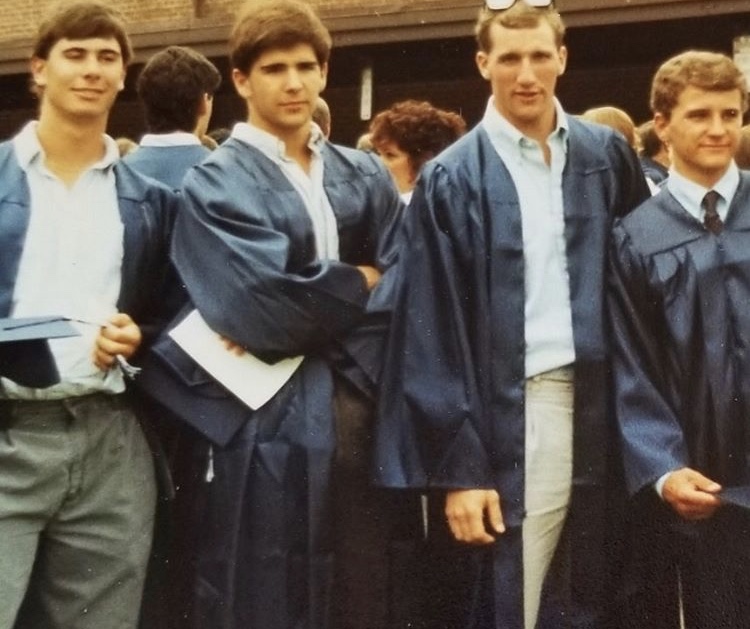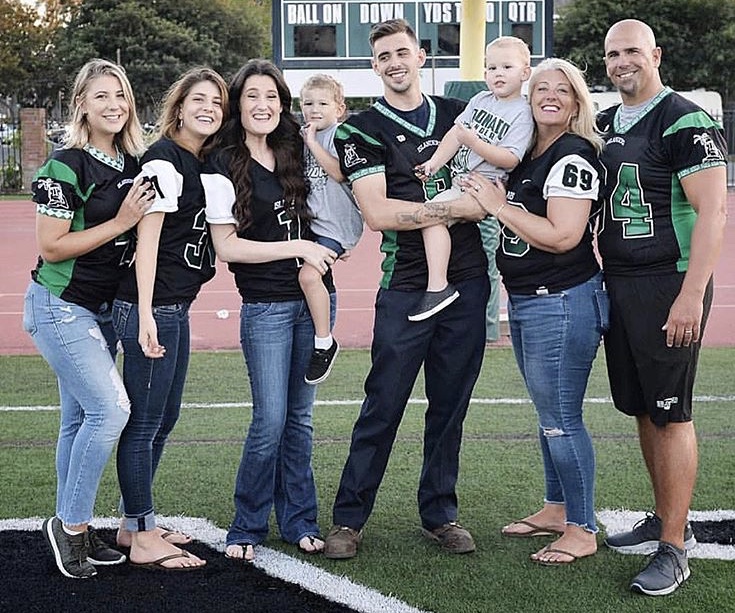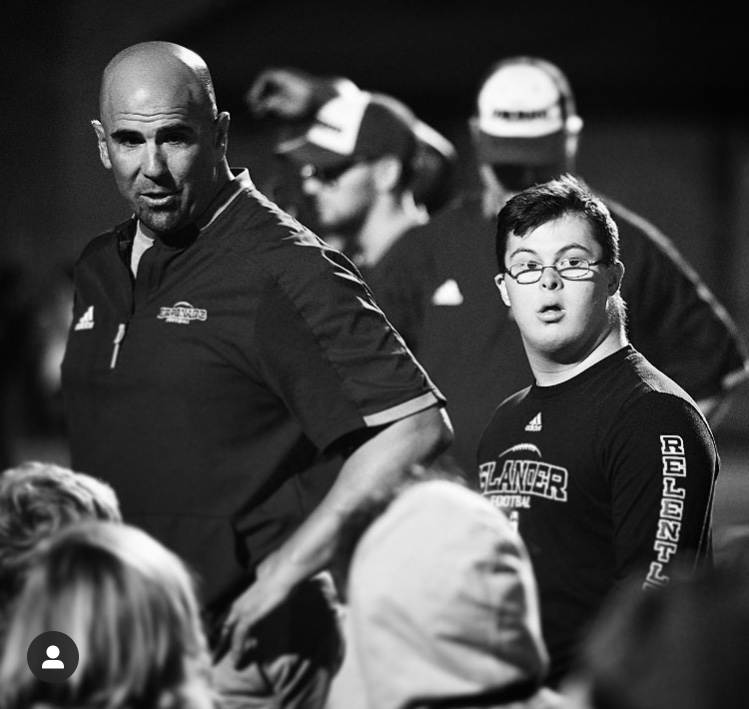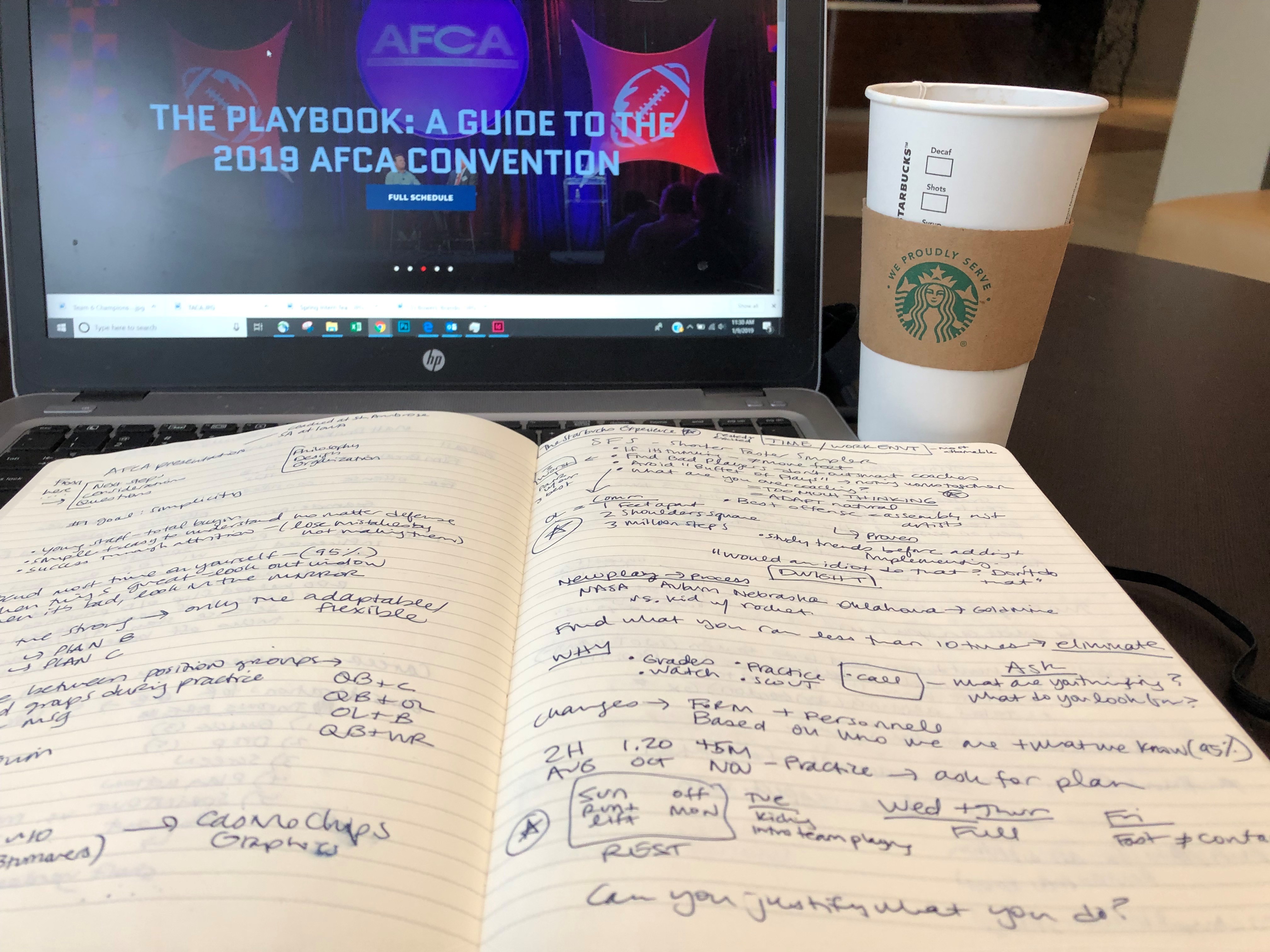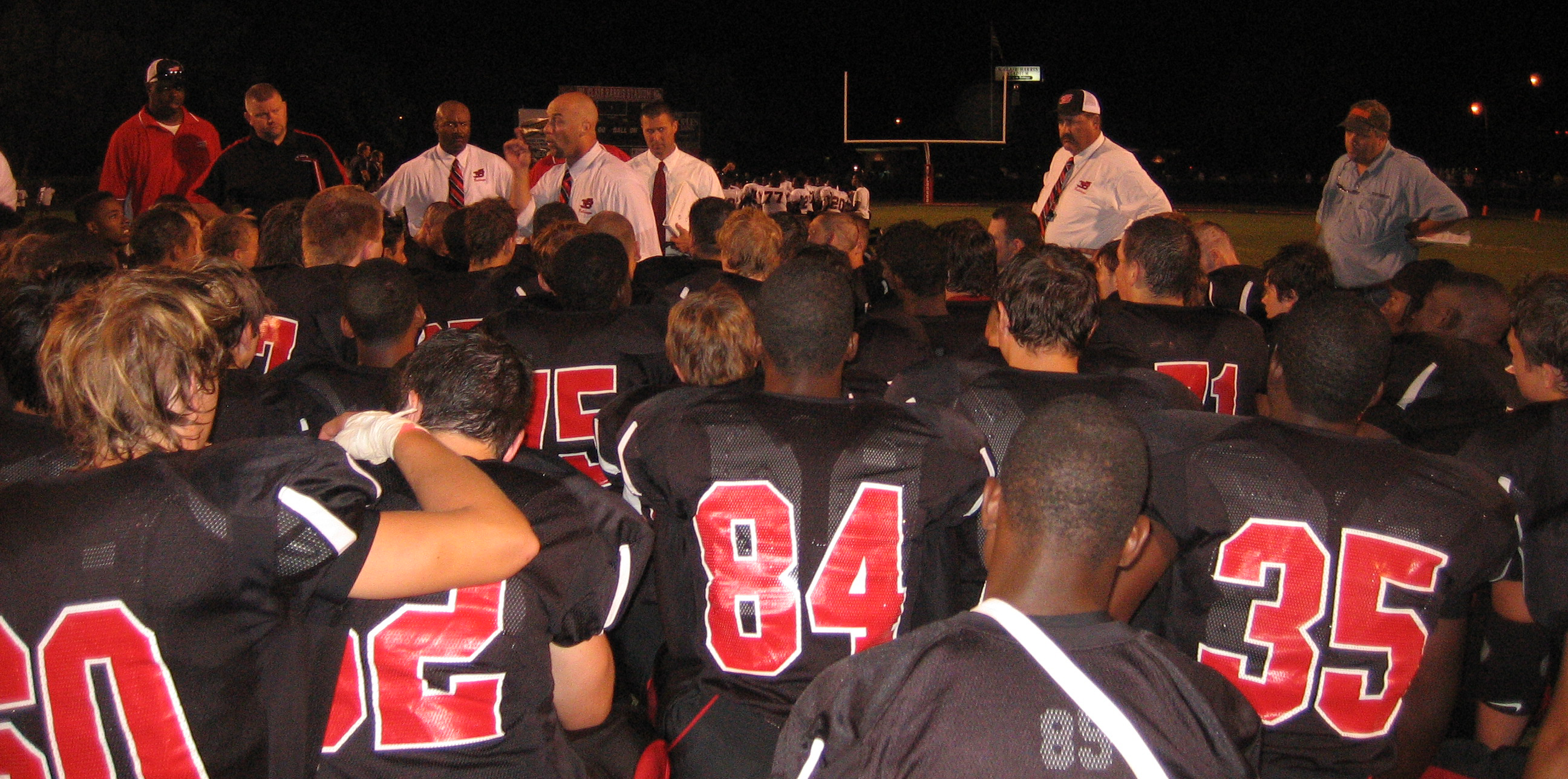Adrienne Smith’s advice for girls and women who love football is simple.
P L A Y.
Number 10 for the Boston Renegades has compiled one of the most decorated careers in tackle and flag football in the game. The receiver’s resume and stats go back more than 10 years:
She is a FIVE-time Team USA flag football competitor who won THREE silver medals.
She won THREE Women’s Football Alliance (WFA) national tackle championships with Boston. In SEVEN of her eight seasons, she led the league as a top-16 overall receiver – compiling 3,272 yards and 37 touchdowns.
Smith was the WFA’s No. 1 overall player in 2016 as a receiver (54 catches, 742 yards and 12 TDs) and kick returner (14 returns, 292 yards and one TD).
She won TWO gold medals from Team USA’s national teams (2010, 2013) and scored the FIRST touchdown in the history of women’s national tackle in 2010: on a 54-yard reception.
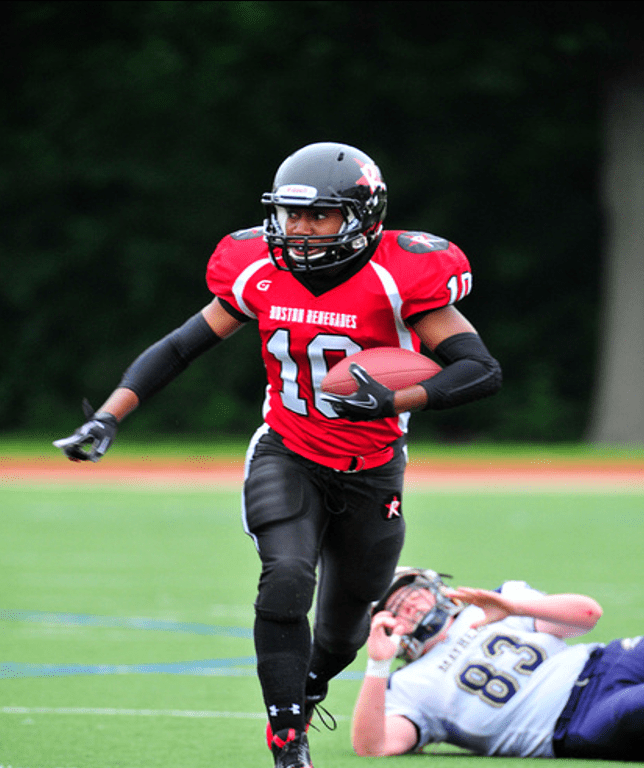
“When opportunities are made available and restrictions removed: girls and women flourish. It brings me joy.”
This week, and especially in the last year, women in football have gained national attention.
Coaches Lori Locust and Maral Javadifar will work alongside Sarah Thomas, the first female official to work the Super Bowl. Jennifer King recently became the first Black woman to earn a full-time assistant coach title for the Washington Football Team.
All three coaches appeared in this week’s Nike and NFL announcement around adding girls’ competitive flag opportunities to high schools.
The tides are turning. More sponsorship. More opportunities. More support. More girls competing in high school.
Haley Van Voorhis, a junior defensive back from Virginia is being recruited by Division III programs. She may become the first woman to play at the NCAA level not as a kicker or punter. As the work is unpaid, Van Vorrhis may also compete for the D.C. Divas, scheduled to play Smith’s team April 18, before she begins college. Free safety Toni Harris became the first woman to sign and play NAIA football in 2019.
Most women – especially those who’ve built as robust a reputation as Smith – started from a much different path.
As a kid, she tackled her stuffed animals. Her dad taught her to throw a perfect spiral. Her mom taught her to fish. Still, Smith put in the work to become a multisport athlete: softball from third grade to graduation. She added basketball in high school and went on to compete overseas in Japan.
Her first exposure to playing football was in high school, when she broke a ring finger grabbing a guy’s flag.
The story includes her disclaimer: “come on, we’re ballers… I was still a champ.”
Of course she finished the game.
Naturally, her team won the championship.
She never looked back.
When we talked on the 35th anniversary of National Women and Girls in Sports Day, Smith was plotting training ideas to prepare for the upcoming WFA season. COVID cancelled what would’ve been her 15th playing tackle in 2020.
The Columbia Business School MBA grad and entrepreneur lives in New York City, recently snowed under. Amid the pandemic, she’s not comfortable visiting a commercial gym, but is pining to get under a barbell to knock out squats and deadlifts.
Make no mistake, no challenge will stop her. After all, she’s an athlete – sprints, jumping rope, flag tournaments, biking, boxing, whatever it takes, it takes.
But if there’s anything Adrienne Smith knows after a truly legendary career spanning football, acting (big flex: she appeared in the Netflix blockbuster Orange is the New Black), media, and building a number of successful businesses, it’s this:
If you want it, you’ll figure it out.
In 2010, 45 women assembled from all over the country to compete in the first-ever International Federation of American Football (IFAF) Women’s World Championships. Sweden hosted the first global gathering of women’s tackle football.
The rallying cry for the Americans: one team, mission gold.
In three games versus Austria, Germany and Canada: Team USA 201 – The World 0. Team USA’s defense gave up an average of 1.5 rushing yards / carry.
“We came back to silence. We did a momentous thing. I wasn’t necessarily looking for a ticker-tape parade but I felt like the moment needed some type of recognition. We killed it. No one scored. We got zero coverage.”
Smith is a less caption, more action woman.
She asked college friends in the foreign service and Department of Justice to lay out the process for visiting the White House – a traditional ceremony for national history-makers.
For three years she wrote letters petitioning to have Team USA invited to celebrate.
In that time, Smith also repeated as a gold medalist on the second Team USA squad.
In 2013, the IFAF Women’s World Championships were hosted in Finland. The Americans defeated Germany, Sweden and Canada to set a new scoring benchmark: Team USA 255, The World 7.
Smith was one of six USA players to score in the championship game (again versus Canada) and scored in each of the other two victories. Team USA created an apt 13 turnovers in its three games, three returned for touchdowns.
Keeping with the theme, 13 women (including now-renown coaches Cleveland’s Chief of Staff Callie Brownson and former Arizona intern and NFL’s first female coach Dr. Jen Welter) accepted the White House invitation.
Few women in football are “just” one thing.
They are CEOs. Intellects. College-educated and streetwise. Business owners and leaders. Police officers and teachers. Moms. Lawyers. Janitors. Every job and title between.
They deftly juggle demands: family, career, and an absolutely burning passion to find their own space.
“Girl. Play Football” is Smith’s rallying cry for Gridiron Queendom – a safe and supportive community for girls and women.
“Football is like math or music. It’s a universal language. I’ve met women from around the world who had the same love and passion I did for the game. I want a little girl in Japan, or a woman in Moscow, who wants to be a football player to not feel alone or weird. I wanted this to be a place where – flag or tackle – they can find community, see images, and read about peers doing the same things.”
In 2018, Smith took a year off from playing tackle in Boston to building BLITZ CHAMPZ, a card game of her own invention.
She pitched for national distribution at Wal-Mart and has big goals for its long-term success. She wants to make the game, which teaches critical math and reasoning in a fun way, a universal favorite – used by millions of elementary school children.
This seeming leap to education isn’t a new one – Smith created Harlem Hip Hop Tours as a unique workshop and field trip platform for grades 3-12 in her backyard.

“We are not a number. We’re here to put up numbers. [Women and girls] make football better.”
Nike commercial aired Feb. 2, 2021
For the past nine years, Smith has commuted five hours a day, three days per week from New York City to Boston in the name of tackle football. She recognizes, however, this pursuit isn’t just her. Not even close.
She most admires Lynn Lewis – her 2008 Team USA flag football coach and a pioneer for the game in New York (where she got her tackle start) – and Molly Goodwin – fellow 2010 Team USA gold medalist, and now owner and coach of the Renegades.
Lewis died after a longtime battle with breast cancer. Her legacy lives on in the work of her Foundation dedicated to helping the families of women also battling the disease. It is funded by the biggest annual women’s flag tournament in the sport. A longtime decorated tackle player in her own right, Goodwin took over as Boston’s owner in 2014 and advocated for the creation of the recently-aired ESPN movie, Born to Play.
Smith considers the selfless leadership of Lewis and Goodwin to be the goal for all role models:
“They created a smoother and broader path for the girls and women behind to follow.”
Girls and women: play football. The message couldn’t be more clear.
Follow Adrienne Smith on Twitter and Instagram.


